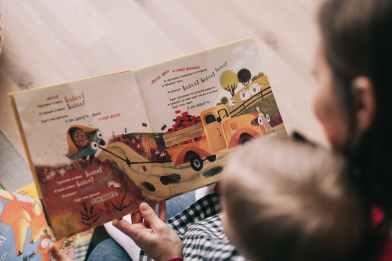As a teacher, I know the sounds of enthusiastic parents when the school term starts – the relief of having some time without teenagers about the house, less chaos and the freedom that term-time brings. However, I also know the familiar groans that start to rumble a week into a long break, summer holidays or a snow day.
But today, now, isn’t an ordinary or scheduled break. And to make matters worse, parents are having to take on an extra role (as if they don’t have too many already) – mine.

I’ve been in the teaching profession now for five years. Before that, I racked up many years of being a moody, unsatisfied, arguable and intolerable teenager (I’d like to think I also had some shining moments…looks to Mum hopefully). I have been on the front line in teenage warfare; defended myself against the tyrades of verbal slander and protected myself against the threat of online social media bashing. Right now, my heart sincerely goes out to those taking up arms in preparation for this fight, because – believe it or not – teaching ain’t easy.
teaching ain’t easy
So, am I here to just dwindle on about my thoughts? No. I actually thought I’d try to help and pass on some words of limited wisdom. Here are some top tips for teaching tyrants:
- Routine
- Routine is key. Having a system keeps kids prepared for what is expected and keeps their attention focused on what is happening that day. Whether it is a full out itenary for each day or even just one feature that reappears daily (think Joe Wicks PE lessons or a cheeky spelling test), this will ensure kids are familiar and not thrown any surprises.
- Lesson Format
- Teachers usually format their lessons – I’d say 90% of the time, mine follow this system (10% descends into chaos). Typically, a small starting task like a quiz, spelling test or even some bullet points on what they looked at previously helps. This benefits them in recalling information, getting into the swing of the topic AND provides you with some extra time to sort the rest of that sh*t out. This then leads into a main knowledge task (might be some reading, a technique or something new to learn) and then practising this (e.g. reading an article and then answering some comprehension questions to prove what they’ve learnt). Then finish with simply revisiting and acknowledging what they’ve done/learnt – my favourite and go-to is to get them to create a sentence using a specific amount of words to tell me what they’ve learnt (i.e. write an 8 word sentence showing me what you’ve learnt). Now, this is not realistic for all parents, all the time. But worth knowing how we style it out so that you can implement/acknowledge this at home.
- BREAKS
- Ever tried getting a room of thirty-odd sixteen year olds to focus on a Friday afternoon? Or just before lunchtime? Kids are prone to procrastinating and having short intervals between each topic/learning time will benefit them. Allowing their minds to reset and have time to stop, focus on things they enjoy before then returning to work, can make all the difference. It’s also good to mimic their school day – allowing for breaks around the same time etc. (This helps in the long run so we don’t end up with students who have become accustomed to 2pm naps).
- Do not fear the Internet
- Understandably, there is a growing fear and anxiety of the internet and its impact on kids today. Obviously, apps like TikTok and Snapchat aren’t going to make the biggest impact in children’s learning today however, the internet is bursting with resources, support and information that is a welcoming sight in the never-ending tunnel of isolation. Youtube has some great videos from teachers and other organisations focusing on everything from skills in certain subject areas to full lessons – also, including visuals will mean that it mixes it up for the kids (and gives you a well deserved coffee break). There are also plenty of resources on social media – Twitter is fantastic for it.
- Ask for help
- Teaching ain’t easy. Don’t be afraid to reach out to people you know for help/guidance. They’ll know where to guide you, offer resources and help out in any way they can – the teaching community have stamped all over COVID-19 with their camaraderie. Use us.
- Enjoy it
- One thing that this terrible scenario has gifted us all with is time. Time together (in isolation). Spend this time reading with your kids, sharing their learning. Remember, it’s not all about textbooks – teach them to cook a meal/life lessons/nature etc. One of the best things about my job is the consistent joy I find in seeing ‘lightbulb’ moments, sharing in a student’s success and building bridges to take them further in life. I could not be happier that others will get to see this side of education.
I could not be happier that others will get to see this side of education.
So there. Some vague tips on teaching at home. I salute all parents and pass on my baton – it’s over to you guys.

